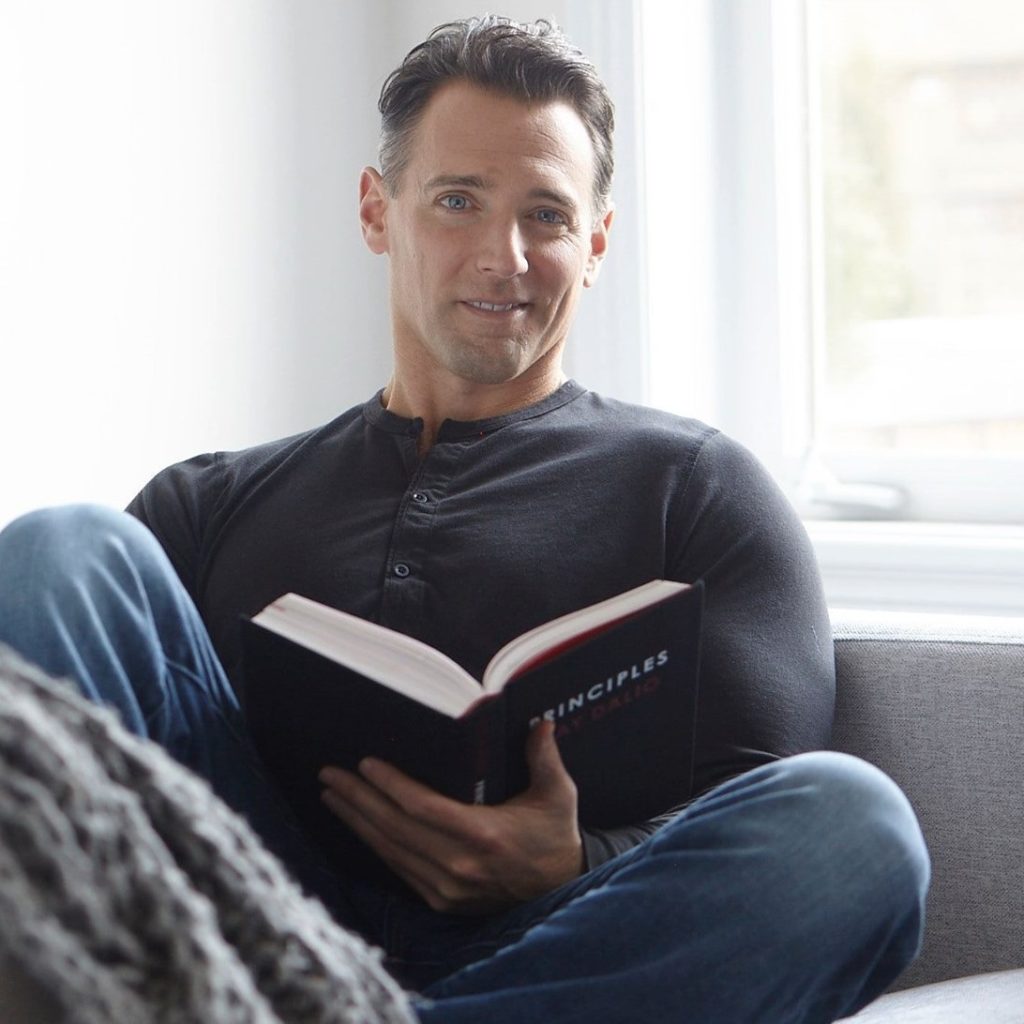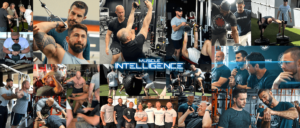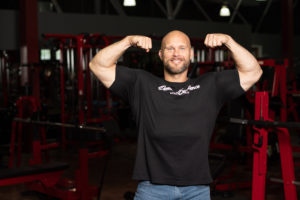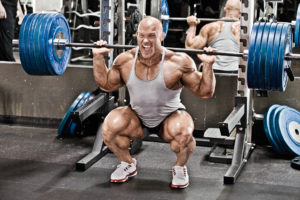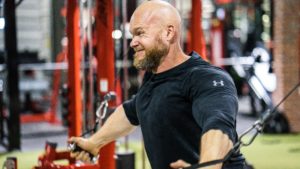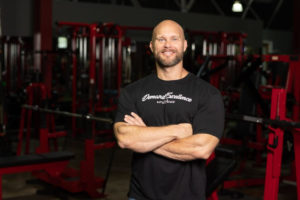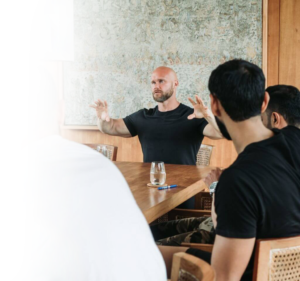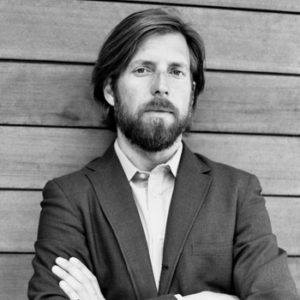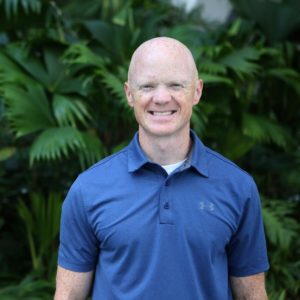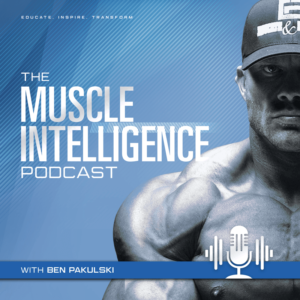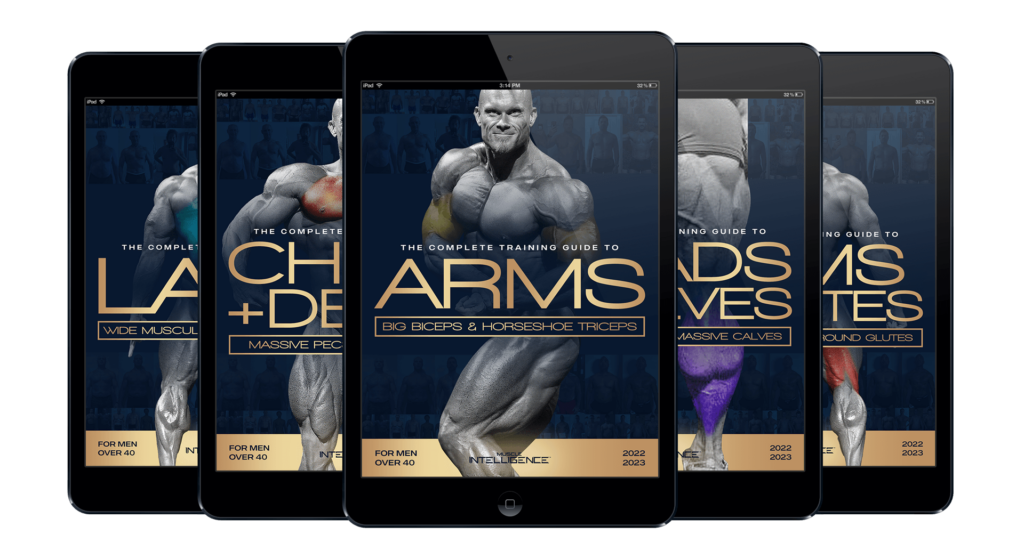This is an excerpt from Muscle Intelligence podcast episode 96 – Where passion meets purpose: becoming a change maker with Dr. John Berardi. This excerpt has been edited for clarity.
[0:57:01.8] Ben Pakulski: In [your book Change Maker] you have two amazing chapters, one on coaching and one on business. I think the coaching chapter did such a great job talking about understanding people and how to get them truly motivated and build strong relationships.
John Berardi: It’s really this two-pronged, two-tiered view of what we’re here to do. The first part is this idea of client-centered versus coach-centered coaching. The second is awesomeness versus awfulness-based. I think everything springs from those. If you don’t believe that you’re here to do client-centered, awesomeness-based coaching, then none of the rest is going to work.
…
Give me a podium and a microphone, stick an audience in front of me. I’ll tell them what they should know and be eating and then they go home without asking any questions, or maybe saying, “That wouldn’t work for me, because I do shift work or whatever.” Are you a sage on the stage, or are you a guide on the side? That’s what we’re hoping to make the coaches of the industry.
If you’re a speaker, if you are a professor and if the job is teach a large group in a non-interactive way, cool, go do that. There’s nothing wrong with that in that context. Coaches aren’t supposed to do that. That’s not coaching. Our mission at Precision Nutrition is to help the whole industry see this. How can we help people become more client-centered? It begins with asking more questions, integrating into the real, authentic life of the person, rather than just spouting out knowledge.
Then the second part to that is this idea of awesomeness versus awfulness-based coaching. We’re trained in health and fitness and sport to some extent to find weaknesses and deficiencies, right? We’re looking for movement problems. We’re looking for incorrect rotation at the hips. We’re looking for nutritional deficiencies. We’re looking for hormonal aberrations. We’re looking for all the things broken with people, so we can make a recommendation, a surgical strike to fix it and make them less broken.
While this should be an important part of your approach, what we fail to do when we rep over and over again, it’s like grooving a squat pattern, when it’s always find the problem, find the problem, find the problem. It’s almost impossible to not squat that way anymore.
Awesomeness-based coaching says, “Hey, maybe they’re not doing a good job with their food and their movement, but where in their life are they doing a great job? How did they get that private jet? Or how do they have such rich personal relationships? Or where are they deeply organized in their lives? How can we use those skills and apply them to fitness and nutrition using analogies to teach, using scheduling to make it so?” This is awesomeness-based coaching. Sure, you can find out if their hips twist the wrong way, or rotate the wrong way, but also find out where they’re crushing their life, where they’re doing so well and figure out how to use those skills here. Help them see the path from there to here. That’s a awesomeness-based coaching.
Really, I mean, there’s lots of strategies and there’s dialog tips in the book, but it all begins with a worldview really, which is: is the client the center, or am I? Am I looking for their awesomeness, or am I just pointing out their awfulness? If you can become the coach who starts with client-centered, awesomeness-based, the rest becomes intuitive. You know the tactics when you start with the right view of the situation.
BP: You did a great job describing goal-setting as well, because I think most people get that process relatively wrong. Can you give us a little insight into that?
JB: We’ve spent a lot of time at PN really figuring out this idea that goals aren’t things you can do. It’s an aspirational outcome that you want. How do you get to a goal? Well, first of all, we don’t necessarily set outcome goals. We can write down what you want the outcome to be, but then we look at behavior goals. What are the behaviors? Workout four times, that’s the goal right there. It’s not lose 20 pounds. Then we talk about mastery goals, so what parts of the process will we master? Again, this isn’t forcing it on the clients, it’s usually a collaborative process.
This is one of my favorite things that I’ve ever taught: It’s the idea if you imagine a blank sheet of paper and you write an outcome that you want to achieve at the top –lose 20 pounds, whatever it might be. Then you start breaking that down like a flowchart into goals that can’t be accomplished on their own. You actually have to do stuff to get goals, right? What do you need to do stuff? Well, you need skills, right? If you had the skills, you’d be able to accomplish the goal. If you don’t have the skills, it doesn’t matter how bad you want it, you won’t get it.
Then we write down on the next line a series of skills that would be required to achieve that outcome. Then under each skill, this is where it becomes a curriculum. We make a practice, right? For the next two weeks, you will do X, and that maps to this new skill you have to build.
That’s what the Precision Nutrition coaching program became. It became a year-long series of skill development broken down into two-week chunks, where every two weeks a new practice comes in. Those practices map to the skills.
Now, I do that for every aspect of my life. Every time I need to achieve or accomplish something, I sit down with someone who has expertise and I build out this flow chart. What are the skills I’m going to need to achieve my goal? What are the practices that I’m going to have to do? Now I have a curriculum. I can build a three-month, six-month, 12-month curriculum for myself.
This is how I think about tackling any big problem. It’s one of the best ways I’ve seen of doing it. It gives me a sense of control, but it also gives me a deep understanding of what it’s going to take at each stage of the journey. A real felt understanding that you don’t just get lucky to achieve goals, you actually have to become a new person through the acquisition and accumulation of new skills.

